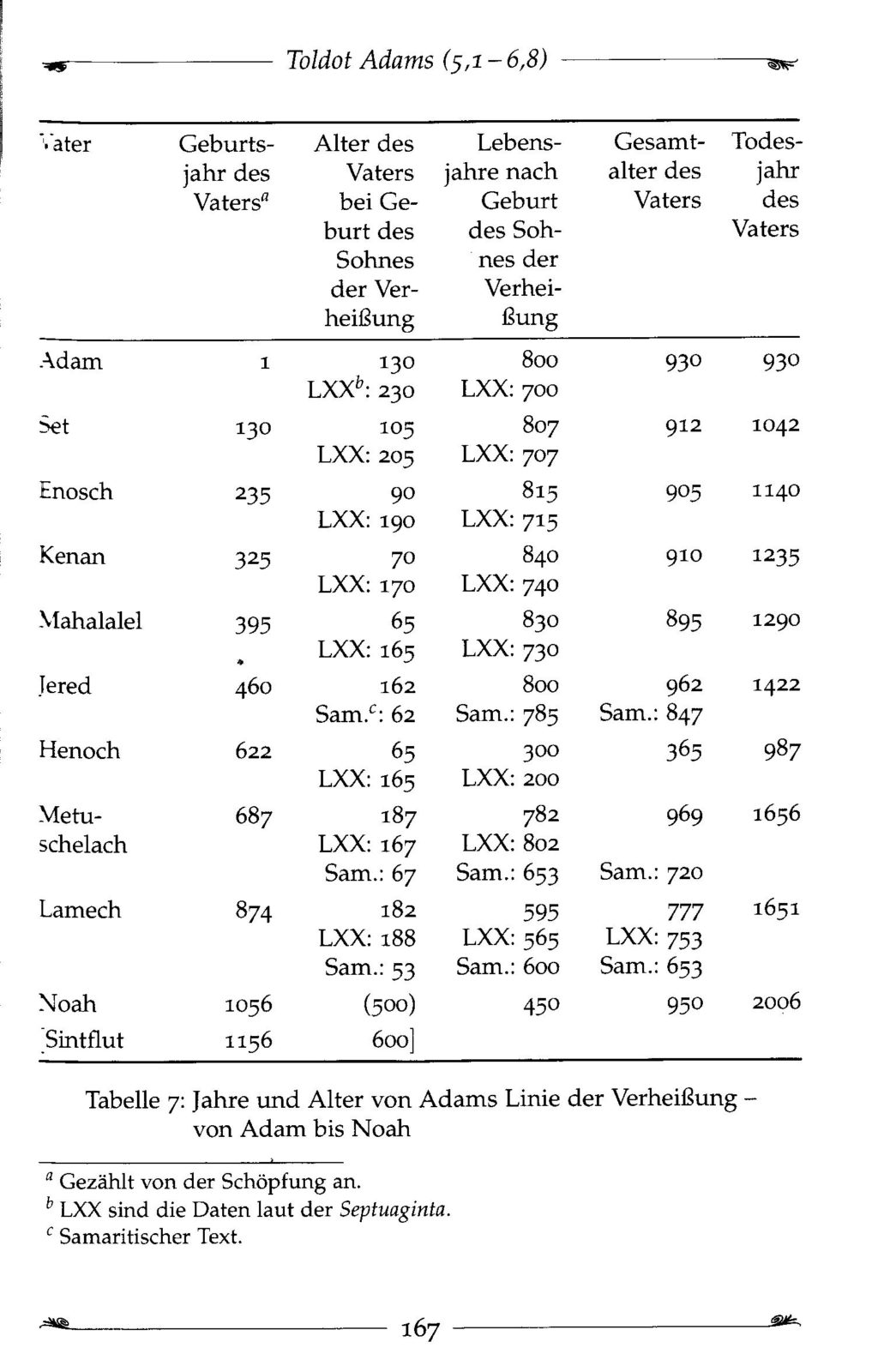Habe ein Video gesehen, dass ich unbedingt mit euch teilen möchte.
Ich hatte bis jetzt gedacht, dass die „Wissenschaftler“ recht haben, die behaupten, das in den Evangelien der Name des Schöpfergottes nicht vorkommen würde. Doch der Forscher, der in diesem Video gezeigt wird, zeigt das er Dokumente gefunden hat, dass in alten hebräischen Dokumenten im Matthäusevanglium, im Johannesevangelium und auch in Lukas der Name Jehovas erscheint!
Wer sich das Video anschaut, bitte aber GANZ anschauen, und nicht nach ein paar Minuten abschalten – den die Schlussfolgerungen daraus sind nicht unbedingt die, die so manch einer am liebsten hätte…
Kategorie: JS
jehovah-shammah.de
neuer Standort
am Freitag soll es nun am neuen Standort mit dem Grundkurs losgehen – und ich hatte das Kabel nicht gefunden, dass für die „Leuttafel“ nötig ist.


Doch nachdem seit gestern das Zelt mit Stühlen und Tisch steht – heute endlich aus das fehlende Kabel angeschlossen, damit die Nachbarn kommen können:

Vorherwissen Gottes
In dem gestern zitierten Buch habe ich eine sehr interessante Passage zum Thema Vorherwissen gefunden:
Acknowledging God’s foreknowledge and also the genuine free will of humankind, especially with respect to the fall, raises obvious questions: Was the fall predestined? If so, how was the disobedience of Adam and Eve free? How are they truly responsible?
Since we aren’t told much in Genesis about how human freedom works in relation to divine attributes like foreknowledge, predestination, and omniscience, we need to look elsewhere in Scripture for some clarification. Let’s look at 1 Samuel 23:1–13. Note the underlining carefully.
1 Now they told David, “Look, the Philistines are fighting in Keilah and they are raiding the threshing floors.” 2 So David inquired of Yahweh, saying, “Shall I go and attack these Philistines?” And Yahweh said to David, “Go and attack the Philistines and save Keilah.” 3 But David’s men said to him, “Look, we are afraid here in Judah. How much more if we go to Keilah to the battle lines of the Philistines?” 4 So David again inquired of Yahweh, and Yahweh answered him and said, “Get up, go down to Keilah, for I am giving the Philistines into your hand.” 5 So David and his men went to Keilah and fought with the Philistines. They drove off their livestock and dealt them a heavy blow. So David saved the inhabitants of Keilah. 6 Now when Abiathar the son of Ahimelech fled to David at Keilah, he went down with an ephod in his hand. 7 When it was told to Saul that David had gone to Keilah, Saul said, “God has given him into my hand, because he has shut himself in by going into a city with two barred gates. 8 Saul then summoned all of the army for the battle, to go down to Keilah to lay a siege against David and his men. 9 When David learned that Saul was plotting evil against him, he said to Abiathar the priest, “Bring the ephod here.” 10 And David said, “O Yahweh, God of Israel, your servant has clearly heard that Saul is seeking to come to Keilah to destroy the city because of me. 11 Will the rulers of Keilah deliver me into his hand? Will Saul come down as your servant has heard? O Yahweh, God of Israel, please tell your servant!” And Yahweh said, “He will come down.”12 Then David said, “Will the rulers of Keilah deliver me and my men into the hand of Saul?” And Yahweh said, “They will deliver you.” 13 So David and his men got up, about six hundred men, and went out from Keilah and wandered wherever they could go. When it was told to Saul that David had escaped from Keilah, he stopped his pursuit.
In this account, David appeals to the omniscient God to tell him about the future. In the first instance (23:1–5), David asks God whether he should go to the city of Keilah and whether he’ll successfully defeat the Philistines there. God answers in the affirmative in both cases. David goes to Keilah and indeed defeats the Philistines.
In the second section (23:6–13), David asks the Lord two questions: (1) will his nemesis Saul come to Keilah and threaten the city on account of David’s presence? And (2) will the people of Keilah turn him over to Saul to avoid Saul’s wrath? Again, God answers both questions affirmatively: “He will come down,” and “They will deliver you.”
Neither of these events that God foresaw ever actually happened. Once David hears God’s answers, he and his men leave the city. When Saul discovers this fact (v. 13), he abandons his trip to Keilah. Saul never made it to the city. The men of Keilah never turned David over to Saul.
Why is this significant? This passage clearly establishes that divine foreknowledge does not necessitate divine predestination. God foreknew what Saul would do and what the people of Keilah would do given a set of circumstances. In other words, God foreknew a possibility—but this foreknowledge did not mandate that the possibility was actually predestined to happen. The events never happened, so by definition they could not have been predestined. And yet the omniscient God did indeed foresee them. Predestination and foreknowledge are separable.
The theological point can be put this way:
That which never happens can be foreknown by God, but it is not predestined, since it never happened.
But what about things that do happen? They can obviously be foreknown, but were they predestined?
Since we have seen above that foreknowledge in itself does not necessitate predestination, all that foreknowledge truly guarantees is that something is foreknown. If God foreknows some event that happens, then he may have predestined that event. But the fact that he foreknew an event does not require its predestination if it happens. The only guarantee is that God foreknew it correctly, whether it turns out to be an actual event or a merely possible event.
Interessant, -die Stelle aus 1.Samuel habe ich bestimmt schon des öfteren gelesen, aber dabei den Schluss zu ziehen, und dies mit der Prädestination in Verbindung zu bringen, war mir nie in den Sinn gekommen.
Eingeboren, einziggezeugt oder einzigartig ?
Beim Hauskreis letzten Donnerstag zum Thema Offenbarung, kam die Frage auf, wie es mit der Person Jesu aussehe, und in wie weit er zur „Familie Gott“ dazu gehört.
Anschließend habe ich ein sehr interessantes Buch gefunden: „About The Unseen Realm: Recovering the Supernatural Worldview of the Bible“.
Hier ein sehr interessantes Zitat:
Readers of Psalm 82 often raise a specific question about Jesus. If there are other divine sons of God, what do we make of the description of Jesus as the “only begotten” son of God (John 1:14, 18; 3:16, 18; 1 John 4:9)? How could Jesus be the only divine son when there were others?
“Only begotten” is an unfortunately confusing translation, especially to modern ears. Not only does the translation “only begotten” seem to contradict the obvious statements in the Old Testament about other sons of God, it implies that there was a time when the Son did not exist—that he had a beginning.
The Greek word translated by this phrase is monogenes. It doesn’t mean “only begotten” in some sort of “birthing” sense. The confusion extends from an old misunderstanding of the root of the Greek word. For years monogenes was thought to have derived from two Greek terms, monos (“only”) and gennao (“to beget, bear”). Greek scholars later discovered that the second part of the word monogenes does not come from the Greek verb gennao, but rather from the noun genos (“class, kind”). The term literally means “one of a kind” or “unique” without connotation of created origin. Consequently, since Jesus is indeed identified with Yahweh and is therefore, with Yahweh, unique among the elohim that serve God, the term monogenes does not contradict the Old Testament language.
The validity of this understanding is borne out by the New Testament itself. In Hebrews 11:17, Isaac is called Abraham’s monogenes. If you know your Old Testament you know that Isaac was not the “only begotten” son of Abraham. Abraham had earlier fathered Ishmael (cf. Gen 16:15; 21:3). The term must mean that Isaac was Abraham’s unique son, for he was the son of the covenant promises. Isaac’s genealogical line would be the one through which Messiah would come. Just as Yahweh is an elohim, and no other elohim are Yahweh, so Jesus is the unique Son, and no other sons of God are like him.
Mir war bis dato nicht bekannt, dass es es heißt dass Jesus Christus einzigartig ist!
„doch die auf Jehova hoffen, werden neue Kraft gewinnen“
der obige Text ist aus Jesaja 40:31.
Wie schön, dass viele Menschen diesen im kommenden Jahr als Jahrestext jede Woche lesen werden.
Doch nicht eine Gemeinschaft ist dass was Rettet oder was dem einzelnen Kraft gibt, sondern nur wer sich auf den Gott der Bibel stützt und SEINEN Rat befolgt.
Wenn du in Berliner Norden wohnst, so bist du herzlich zu unseren Bibelstudien und Grundkursen eingeladen. So kannst du ein besseres Verhältnis zu Jehovah aufbauen und aus seiner Kraft Nutzen ziehen.
wer liest denn heute noch?
Wie oft liest DU in Gottes Wort? Obwohl heute „so günstig zu haben“, erstaunt wie wenige Menschen die Bibel besitzen und darin lesen.
Erfurt (idea) – Fast die Hälfte der Bürger in Deutschland besitzt eine Bibel, aber nur die wenigsten lesen regelmäßig darin. Das ergab eine Umfrage des Meinungsforschungsinstituts INSA-CONSULERE (Erfurt) im Auftrag der Evangelischen Nachrichtenagentur idea.
Demnach sind die Bürger mit einer Bibel knapp in der Mehrheit (46 Prozent). 44 Prozent verfügen nach eigenen Angaben nicht über eine Ausgabe der Heiligen Schrift, obwohl rund 60 Prozent Mitglieder einer Kirche sind.
Im Westen haben fast sechs von zehn Befragten eine Bibel (58 Prozent), im Osten sind es nur vier von zehn (40 Prozent).
Die Umfrage kam teils zu überraschenden Ergebnissen: So haben mehr als zwei Drittel der landeskirchlichen Protestanten (68 Prozent) mindestens eine Bibel im Regal stehen, bei den Freikirchlern, die als besonders bibelfest gelten, sind es nur 57 Prozent, bei den Katholiken 56 Prozent. Bei den Konfessionslosen nennt etwa jeder Vierte (27 Prozent) ein Exemplar der Bibel sein Eigen.
Der Umfrage zufolge sind freikirchliche Christen allerdings die eifrigsten Bibelleser. Ein Drittel (32 Prozent) studiert regelmäßig das Wort Gottes. Von den Katholiken tun dies acht Prozent und von den landeskirchlichen Protestanten sieben Prozent. Bei den befragten Juden und Muslimen liegt der Anteil der regelmäßigen Bibelleser bei jeweils fünf Prozent und bei den Konfessionslosen bei zwei Prozent. An der Befragung nahmen 1.933 Personen aus ganz Deutschland ab 18 Jahren teil.
6000 Jahre oder wie viel?
Ich kann mich nur zu gut daran erinnern, dass mein Papa um 1975 herum auf Milimeterpapier die Alter der Menschen von Adam bis zu Jesus aufgemalt hat, und dann zu dem Schluß kam, dass im Jahre 1975 tatsächlich 6000Jahre Menschheitsgeschichte um wäre.
Im laufe der Zeit stellte ich fest, dass der jüdische Kalender irgendwie anders tickt. Aber warum? Warum ist dort das Jahr 5777 nach Erschaffung der Welt?
In der Vorbereitung auf Sonntag habe ich nun die Lösung für diesen unlösbaren Konflikt gefunden. Es ist eine Frage welche „Übersetzung“ ich benutzte: nehme ich eine hebräische Bibel dann komme ich auf eine „kürzere Zeit“ – nehme ich die „Septuaginta“ dann komme ich auf eine „längere Zeit“- und dann gäbe es noch die Möglichkeit einen weiteren „Grundtext“ zu nehmen und käme auf eine weitere Zeit.
Warum liess Jehova zu, dass die Jahre nicht korrekt bis zu uns heute einheitlich überliefert wurden? Weil es wohl aus seiner Sicht nicht wirklich wichtig ist, wie alt der Mensch hier auf der Erde ist – denn sein Wiederkommen hängt NICHT von einer Jahreszahl ab, sondern wird durch ein bestimmtes Ereignis von bestimmten Menschengruppen ausgelöst werden – siehe hierzu Matthäus 23:39 und Sachar ja 12
ja 12

Neueste Kommentare